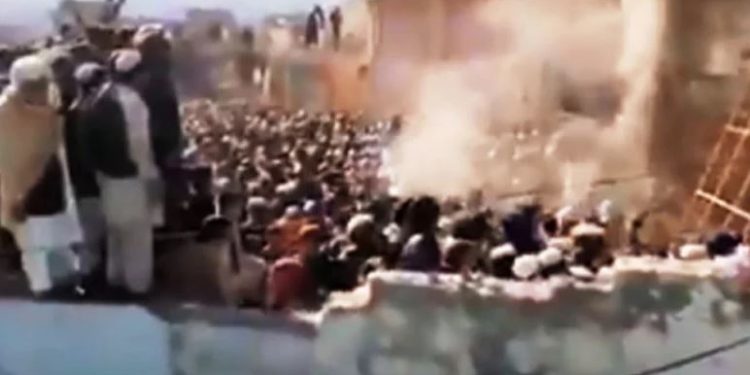Peshawar: Pakistani police have arrested 26 people belonging to a radical Islamist party after a Hindu temple was vandalised and set on fire by a mob protesting its renovation in northwest Pakistan.
A central leader of radical Jamiat Ulema-e-Islam party, Rehmat Salam Khattak, is among 26 arrested in raids following the attack on the temple in Terri village in Khyber Pakhtunkhwa’s Karak district on Wednesday, Station House Officer Rehmatullah Khan told PTI.
The mob, led by the supporters of Jamiat Ulema-e-Islam party (Fazal ur Rehman group), ptotesting the expansion work of the temple, demolished the newly constructed work alongside the old structure.
The incident drew condemnation from human rights activists and the minority Hindu community.
Pakistan’s federal Parliamentary Secretary for Human Rights Lal Chand Malhi strongly condemned the attack on the temple.
Noting that some groups are active in carrying out such anti-social activities to defame Pakistan, Malhi said the government will not tolerate such incidents.
Khyber Pakhtunkhwa Chief Minister Mahmood Khan termed the attack on the temple as “an unfortunate incident.”
He ordered immediate arrest of those involved in the incident.
Khan vowed that his government will protect worship places from such incidents.
Leader of Hindu Community Peshawar Haroon Sarab Diyal said that a samadhi of a Hindu religious leader exists at the temple site and Hindu families from across the country do visit the samadhi on every Thursday.
He said the incident has hurt the sentiments of the Hindu community and the Islamic Ideology Council should take note of it.
Diyal said Prime Minister Imran Khan talks about promotion of religious tourism in Pakistan but minority worship places were not safe in his own country.
Hindus form the biggest minority community in Pakistan.
According to official estimates, 75 lakh Hindus live in Pakistan. However, according to the community, over 90 lakh Hindus are living in the country.
The majority of Pakistan’s Hindu population is settled in Sindh province where they share culture, traditions and language with Muslim residents. They often complain of harassment by the extremists.
PTI







































